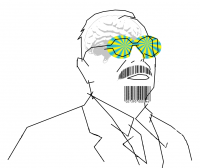Introduction to audio-electronics part1/4
|
This four-piece seminar-series is meant to teach some of the underlying principles of audio-amplification, frequency-filtering and signal-processing that apply to amplifiers, guitar stompboxes and microphone preamps. During this course you will be introduced to the fundamental building blocks of analog circuits (resistors, capacitors, transistors and op-amps), learn how to distinguish circuit-building blocks and how to apply some simple calculators for frequency-filtering. Lastly, we'll dissect some schematics to understand the function of each and every component.
The workshop will conclude with a 'practical' involving the building of your own DIY distortion- or fuzz pedal, for which kits will be supplied. The supply of these is limited, so make sure you sign up timely.
-Basic knowledge of electronics is useful, but I'll try to accommodate all attendees -Some mathematics might be introduced, but they'll be approached from a pragmatists' perspective
Part 1. (Wednesday 19:00 - 21:00 --- 13/06/2018---)
We all know what sound is, but what does it look like in its electronic form? We'll see how a speaker works and how it is able to produce sound. Then we’ll look at various waveforms (sines, square waves and other sinusoids) and the translation between the ‘frequency-domain’ and ‘time-domain’. When the crowd is math-savvy we could try a Taylor-expansion of a square wave. Otherwise we’ll indulge in the knowledge that Fourier-transformations give us. With our knowledge of waveforms, we will assess various types of signal distortion. Some more pleasant than others.
